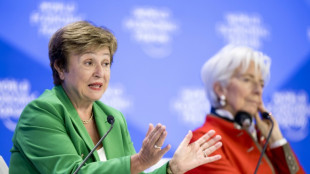

Shares in Chinese conglomerate Fosun dive on report of watchdog scrutiny
Club Med owner Fosun, one of China's largest private-sector conglomerates, saw billions wiped off its value on Wednesday as jittery investors reacted to a media report that the group was under regulatory scrutiny.
There has been growing concern about the debts of Chinese companies, particularly after a run of high-profile defaults in the property sector last year that rippled through the wider economy.
Bloomberg News on Tuesday cited unnamed sources as saying that regulators, including China's banking watchdog and the local commission overseeing state investments, have told large lenders and state-owned enterprises to closely examine their exposure to Fosun.
Shares in Fosun International Limited, the conglomerate's flagship company, slid as much as 9.6 percent in Hong Kong to HK$4.41 on Wednesday, the lowest level since November 2012.
Fosun's Chief Financial Officer Alex Gong rejected the Bloomberg report as "completely false".
"Neither the China Banking and Insurance Regulatory Commission (CBIRC) nor the Shanghai Banking and Insurance Regulatory Commission have asked commercial banks to find out about Fosun's financial exposure, and those institutions have not received any notice of this," Gong told the South China Morning Post.
The public had a "one-sided interpretation" of Fosun's recent reductions in shareholdings and divestments and failed to see that they were part of a long-term financial strategy, the Shanghai-based company added in a statement.
- Circus and football -
Co-founded by tycoon Guo Guangchang in 1992 during the heady days of China's initial "reform and opening" period, Fosun started off in pharmaceuticals and real estate but has since built a sprawling business empire that includes tourism and finance.
A prolific buyer of global assets, Fosun owns French brand Club Med and has a controlling stake in the fashion house Lanvin.
It owns English Premier League football club Wolverhampton Wanderers and has a major stake in Canadian circus producer Cirque du Soleil.
In 2020, Fosun struck a deal with Germany's BioNTech to manufacture its coronavirus vaccine in China and later became its exclusive distributor to the Greater China region.
Chinese companies have faced growing scrutiny over their debt exposure, especially those in the property sector.
Multiple construction giants, including Evergrande, have defaulted on debts and been forced into major restructuring.
Beijing has also launched regulatory investigations in multiple sectors, including education and technology businesses, clipping their growth.
In recent months China's economy has been reeling from a debt crisis in its massive property sector, mortgage boycotts, as well as disruptions from coronavirus lockdowns in finance and manufacturing hubs.
Fosun faces as much as $8 billion in bond repayments through 2023, according to Bloomberg News.
The CBIRC's request to banks to check their exposure to Fosun debt does not mean it wants lenders to change their financing, and the regulator's move may not result in any action, Bloomberg reported.
The Beijing branch of the State-owned Assets Supervision and Administration Commission was also among the regulators who asked institutions it oversees for closer scrutiny regarding Fosun, the report added.
Fosun's debt stood at 261 billion yuan ($37.7 billion) as of June 30, up from 237 billion yuan at the end of last year, according to an earnings report last month.
Moody's last month downgraded Fosun, citing weak liquidity and a weakening portfolio amid asset sales.
E.Janssens--JdB



